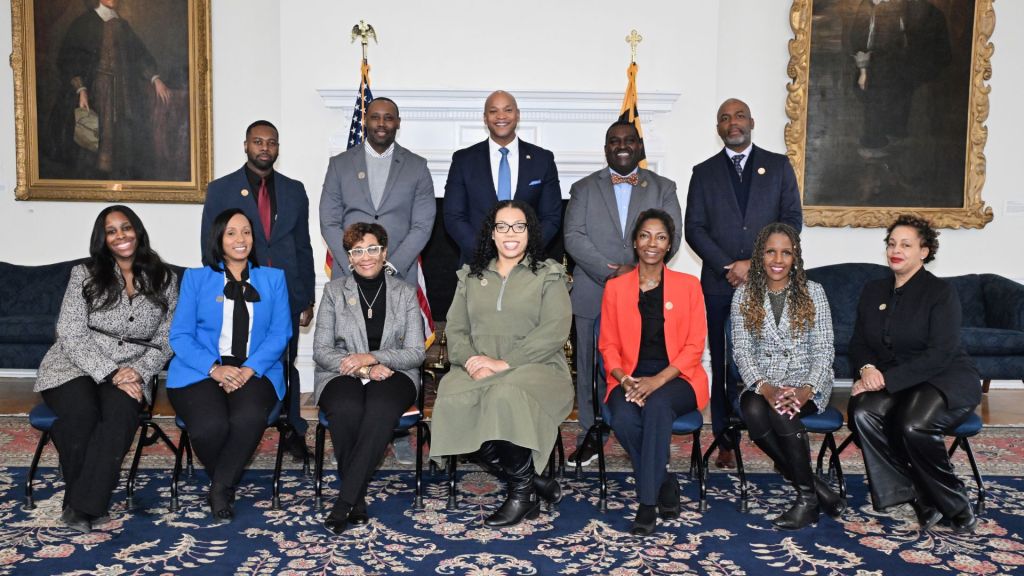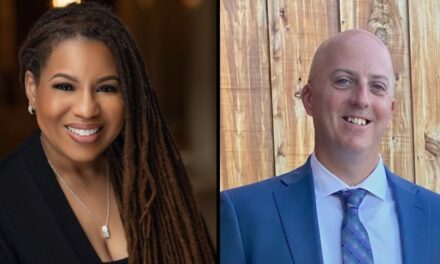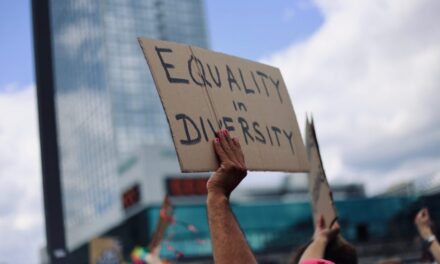By Chrissy M. Thornton Special to the AFRO
Members of the Black Leadership Circle (BLC) gathered in Annapolis Jan. 23 for their annual Business Day, a time dedicated to engaging directly with state officials and fostering meaningful discussions on issues affecting Black communities in Maryland. Under the guidance of Lisa Harris Jones, a respected expert in government affairs, the delegation arrived with a clear mission: to serve as trusted thought partners and liaisons for state leaders working on issues that impact economic and social advancement.

The Black Leadership Circle was created to fill a critical void in executive leadership representation. Too often, Black professionals and business leaders are left out of key conversations that shape the state’s economy, workforce and social policies. Recognizing this, the Circle has positioned itself as a progressive and inclusive space where Black executives can align efforts, build strategic alliances and advocate for sustainable change. The organization exists not just to amplify voices but to establish direct channels of communication with policymakers, ensuring that Black leaders have a seat at the table when decisions are considered.
The day began at the MedChi Office in downtown Annapolis, where members gathered for a series of legislative briefings. Chuck Cook, chief legislative officer for the state Department of Housing and Community Development, provided an overview of the Housing for Jobs Act of 2025, an initiative aimed at linking affordable housing with workforce development to stimulate economic growth. The morning continued with a briefing from the Governor’s Office’s Deputy Legislative Officer Brad Fallon, who outlined key priorities of Gov. Wes Moore’s administration, including the DECADE Act, the RAISE Act and the Procurement Reform Act. These initiatives reflect Maryland’s commitment to modernizing economic infrastructure, expanding small business opportunities and creating pathways for workforce development.
Following these briefings, BLC members moved to the Maryland State House to observe both the House and Senate floor sessions. Watching the legislative process in action reinforced the importance of engagement at every level of government. They then split into smaller groups for a series of breakout meetings with key legislators, each focused on a specific area of economic or social concern. These conversations spanned a range of topics, including environmental and transportation policies with Del. Marc Korman (D-Dist. 16) and healthcare access with Del. Joseline Peña-Melnyk (D-Dist. 21).
Each meeting underscored the value of collaboration between government and community leaders. Since it does not lobby for specific policies, the Black Leadership Circle approached these discussions as thought partners, providing insights into the real-world impact of legislative decisions. By sharing experiences from their respective industries and communities, BLC members help ensure initiatives remain equitable and effective.
The discussions continued with additional key meetings. One group met with Sen. Brian Feldman (D-Dist. 15), chair of the Senate Education, Energy, and Environment Committee, to discuss legislation covering education policy, renewable energy and environmental conservation. Sen. Feldman provided critical insight into upcoming policies aimed at promoting sustainability and ensuring equitable education opportunities for Maryland residents. Simultaneously, another group engaged in dialogue with Del. Dalya Attar, recently nominated to fill the Senate vacancy for Baltimore City’s 41st District. Attar outlined her legislative priorities, which focus on education reform, juvenile crime reduction and fiscal responsibility. To close the meetings, part of the group met with House Majority Leader David Moon (D-Dist. 20), while Sen. Antonio Hayes (D-Dist. 40) welcomed a partial representation of the group into his office to converse.
Amid the scheduled meetings, the auxiliary group, powered by Associated Black Charities, experienced an unexpected and deeply affirming moment. Gov. Wes Moore extended an invitation for a private visit to his office and personal study. Moore, Maryland’s first Black governor, welcomed the group with warmth and gratitude, engaging in an open discussion about his points of inspiration.
Recognizing his dedication to championing Black professionals and businesses, the BLC honored Moore by officially inducting him as an honorary member of the organization. The moment was powerful, not only because it celebrated Moore’s leadership, but also because it affirmed the critical role the Black Leadership Circle hopes to play in shaping Maryland’s future.
The day concluded with a luncheon at Harry Browne’s, where members reflected on the day’s engagements and discussed strategies for maintaining momentum. During lunch, the group heard from guest speakers who further reinforced the importance of economic policy and workforce development in Maryland. Chair Ben Barnes (D-Dist. 21), head of the House Appropriations Committee, provided updates on the state’s operating and capital budgets, fiscal policies and key social services legislation planned for the 2025 session. His insights underscored the need for continued advocacy and resource allocation to support education, healthcare and economic opportunity. Secretary Kevin Anderson of the Maryland Department of Commerce outlined the department’s priorities for job creation, workforce training and business expansion. Anderson highlighted ongoing efforts to provide access to capital and state-backed programs that drive innovation and economic mobility.
While the Business Day in Annapolis was a success, the work does not end here. The Black Leadership Circle remains committed to fostering relationships with state and local officials, engaging in ongoing dialogue about the needs of the Black community and empowering individuals with the information they need to make informed decisions. The organization recognizes the urgent need to challenge efforts that roll back equity initiatives and remains steadfast in its role as a resource for government leaders who prioritize justice and fairness.
Black leadership in civic and economic spaces is not just necessary—it is imperative. The Black Leadership Circle has proven that when Black leaders show up collectively and strategically, they can drive meaningful progress. The engagement in Annapolis was not simply about conversations; it was about laying groundwork for continued partnership and sustainable change. As Maryland moves forward, the presence and influence of the Black Leadership Circle will remain a vital force in ensuring that equity and inclusion are not just ideals, but realities. The movement is strong, the leadership is unwavering and the future is bright.
Chrissy M. Thornton is president and CEO of Associated Black Charities and a founding member of the Black Leadership Circle.
The post A powerful display of Black leadership and collaboration in Annapolis appeared first on AFRO American Newspapers.










